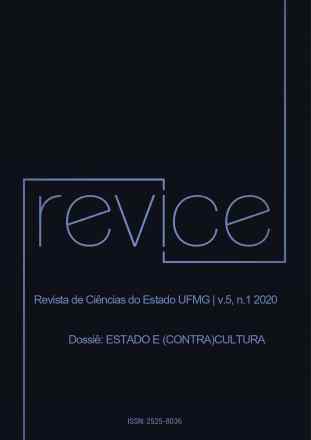O país do carnaval: O refinado riso da eutrapelia
REVISTA DE CIÊNCIAS DO ESTADO - REVICE
O país do carnaval: O refinado riso da eutrapelia
Autor Correspondente: J. Ciasca Brandão | [email protected]
Palavras-chave: utopia; mundo às avessas; guerra dos trinta anos; carnaval; eutrapelia
Resumos Cadastrados
Resumo Português:
Este artigo busca compreender o novo significado atribuído ao riso e ao Carnaval pelas autoridades religiosas e civis no século XVII, tendo como objeto de investigação a Utopia, obra homônima à de Thomas Morus, publicada em 1640 e escrita por Jakob Bidermann, jesuíta alemão, dramaturgo e futuro inquisidor da Igreja Católica em Roma. O texto relata a viagem de três amigos para um país imaginário chamado Utopia, onde os habitantes festejam um eterno Carnaval, o caos é institucionalizado, as regras da cultura estão suspensas, os cidadãos andam mascarados, e bebe-se e come-se em demasia. Os viajantes experimentam as terríveis consequências deste “mundo de cabeça para baixo” e as inseguranças de um lugar que vive imerso em vício, vaidade, violência e excesso; descobrem então que o mundo real, se baseado nas virtudes e na moral cristã, e principalmente se guiado pela Igreja Católica, torna-se um lugar muito mais verdadeiro, tranquilo e belo de se viver. Este artigo também discute a escolha do título e o significado de “utopia” concebido pelo texto.
Resumo Inglês:
This article intends to understand the new meaning attributed to laughter and to Carnival by religious and civil authorities in the seventeenth century, with the object of research being Utopia, a Thomas Morus’s homonymous work, published in 1640 and written by Jakob Bidermann, German Jesuit, theater writer and future Inquisitor of the Catholic Church in Rome. The book recounts the journey of three friends to an imaginary country called Utopia, where the inhabitants celebrate an eternal Carnival, chaos is institutionalized, the rules of culture are suspended, citizens are masked, and drink and eat too much. The travelers experience the terrible consequences of this “topsy-turvy world” and the insecurities of a place that lives immersed in vice, vanity, violence and excesso. In the end, they discover that the real world, when based on Christian virtues and morality, and especially when guided by the Catholic Church, becomes a much more real, tranquil and beautiful place to live. This article also discusses the choice of title and the meaning of “utopia” conceived by the text.

